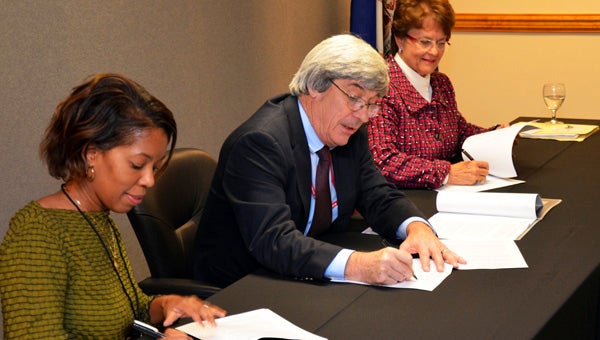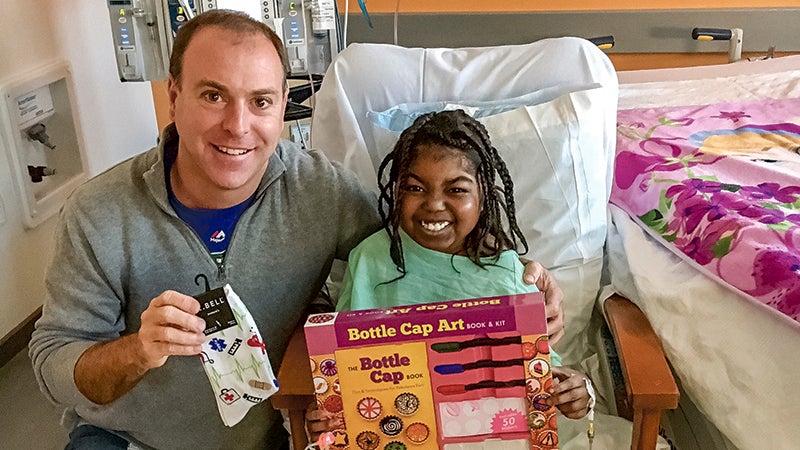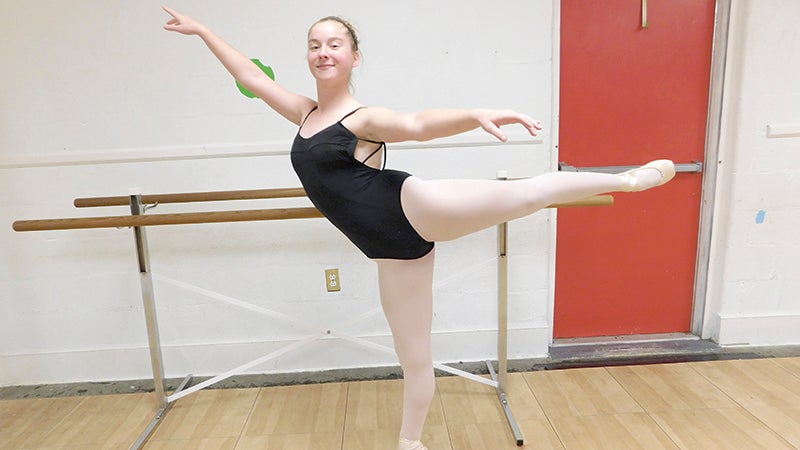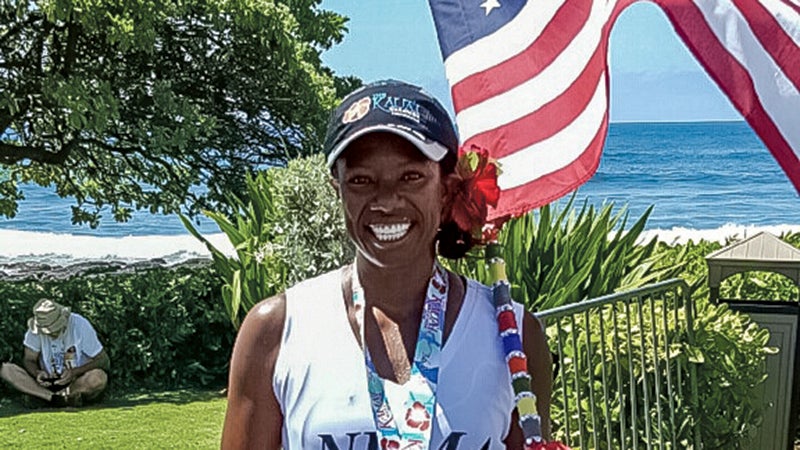Education plan ready to STEAM ahead
Published 9:35 pm Wednesday, November 28, 2012

Suffolk’s Judy Stewart and M. Caroline Martin sign a memorandum of understanding with Hugh Montgomery, director of the Thomas Jefferson National Accelerator, regarding the planned Virginia Science, Technology, Engineering and Applied Mathematics (STEAM) Academy.
Two Suffolk citizens are spearheading plans for Virginia’s first public boarding school specializing in preparing students for careers of the future.
The Virginia Science, Technology, Engineering and Applied Mathematics (STEAM) Academy is on track to induct its first cohort of ninth- through 12-grade students in fall 2014. A camp is scheduled for next summer to introduce the concept to parents and students.
M. Caroline Martin, Suffolk’s 2012 First Citizen, a retired health system administrator and board member for Suffolk Partnership for a Healthy Community and the Western Tidewater Free Clinic, founded the project with Judy Stewart, an education consultant who moved to Suffolk from Illinois a decade ago.
The two became acquainted while serving together on nonprofit boards, Martin said. Stewart broached with her the idea of a residential academy two years ago.
“Early November 2010, she (Stewart) sent me a concept paper and (asked) would I be interested in working with her on that,” Martin said.
At the time, Martin was competing in City Council elections against car dealership owner Mike Duman in the Chuckatuck borough.
After narrowly losing the political contest, Martin decided to turn her attention to the academy. “We sat around my kitchen table for a couple of days, took that concept and expanded it into a project benefiting the entire commonwealth,” she said.
From there, forming a steering committee, the pair started out in earnest to win the support of public policy decision-makers, potential partners and backers.
“Obviously this has been a project that has involved garnering support statewide, starting here in Hampton Roads,” Stewart said.
This year, the General Assembly awarded a $200,000 planning grant to the academy, and memoranda of understanding have been signed with various partners.
Tertiary education partners, four of whom have signed MOUs, include Virginia Tech, the Virginia Military Institute, the College of William & Mary, Tidewater Community College, Eastern Virginia Medical School, the universities of Virginia and Maryland-Baltimore County and Old Dominion and Norfolk State universities.
The most recently MOU was signed on Monday with Jefferson Science Associates/Jefferson Lab in Newport News.
Lab spokeswoman Deborah Magaldi wrote in an email that academy students and faculty would have “access to the world-class science and technology and science outreach programs managed by JSA at Jefferson Lab.”
The MOU “lays the groundwork” for science education opportunities at the lab and for assistance to academy officials with grant applications.
“For instance, students and faculty will be able to attend a variety of scientific talks and lectures, and participate in organized mentoring opportunities that could increase the depth and breadth of their knowledge and skills,” Magaldi wrote.
Another MOU has been signed with Fort Monroe, where the academy hopes to locate and where the camp will likely be held.
Stewart says the United States currently has 19 residential schools with specialized science and math programs, while over 100 schools offer some version.
Though the academy would cost about twice the average $10,000 it costs to educate a public school student in Virginia, due to its residential component, immersive programming and outreach, students will attend free of charge, Martin said, with a mixture of public and private funding paying their way.
A summer residential academy is also planned for higher-achieving sixth- through eighth-graders, as well as professional development for teachers and administrators and on-demand digital classroom instruction across the commonwealth.
The 2014 planned first intake is for 250 ninth-graders, Martin said, with 250 more to be added each year, reaching an eventual 1,000 students in 2018.
The student body and faculty would reflect Virginia’s demographics, Martin said, adding that the “highly selective school” would take high achievers as well as students who may thrive if given the opportunity.
“We will look at a students’ test scores, teacher recommendations, interests, things students have been involved in and community service,” she said.





